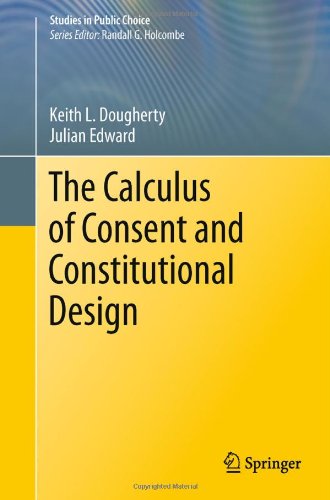

Most ebook files are in PDF format, so you can easily read them using various software such as Foxit Reader or directly on the Google Chrome browser.
Some ebook files are released by publishers in other formats such as .awz, .mobi, .epub, .fb2, etc. You may need to install specific software to read these formats on mobile/PC, such as Calibre.
Please read the tutorial at this link: https://ebookbell.com/faq
We offer FREE conversion to the popular formats you request; however, this may take some time. Therefore, right after payment, please email us, and we will try to provide the service as quickly as possible.
For some exceptional file formats or broken links (if any), please refrain from opening any disputes. Instead, email us first, and we will try to assist within a maximum of 6 hours.
EbookBell Team

5.0
30 reviewsBuchanan and Tullock’s seminal work, The Calculus of Consent, linked economic methodology to substantive questions in political science. Among the major contributions of their book is a connection between constitutional decision making and contractarianism, a philosophical tradition that proponents believe can give institutions legitimacy. In other words, a major contribution of their book is a clear connection between empirical decision making and normative principles. The current book formalizes and extends their foundational ideas as it attempts to show how economic and philosophical arguments about the "best" voting rules can be used to improve constitutional design. It informs debates about constitutional political economy in comparative politics, democratic theory, and public choice. Political scientists often ask questions about what causes a nation to seek a new constitution, how constitutions are made, and what factors allow for corrupt decision making. The Calculus of Consent and Constitutional Design bridges the gap between normative questions about which institutions are most efficient and fair and empirical questions about how constitutions are formed. This provides a benchmark to help create better constitutions and informs empirical research about what institutions are most likely to succeed.
The book begins by showing how contractarian ideals can be used to justify choices about decision-making. It then carefully defines several concepts employed by Buchanan and Tullock and shows why the relationships between these concepts may not be as closely linked as Buchanan and Tullock first thought. This provides a backdrop for analyzing the three phases of constitutional decision-making: 1) the constitutional phase, where rules for constitutional decision making must be justified; 2) the legislative phase, where the optimal k-majority rule is analyzed; and 3) the electoral phase, where the optimal voting rule for large electorates and open alternatives are determined. These phases differ by context and sources of legitimacy. Computational models and analytic techniques are introduced in each of these chapters. Finally, the book concludes with statements about the significance of the research for the creation of constitutions more broadly.